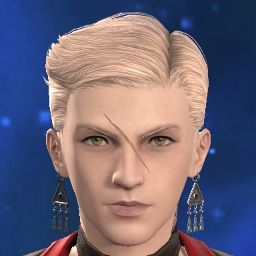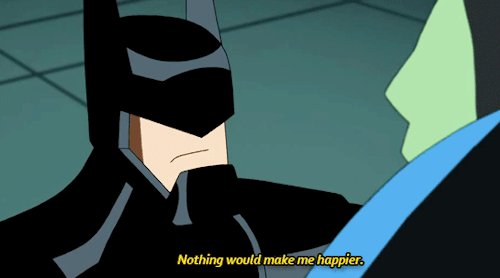Well the timeline idea is interesting except that I don't agree. I have the literal opposite perspective. I think if we got a side story it would be the Elpis visit timeline continued after we left and we got to see what an informed Venat actually did. I think the Elpis visit is the weird timeline you are talking about but it was simply cut off to avoid messing with the MSQ. Which is why I think it would be cool if it wasn't cut off and had nothing to do with MSQ. But if that happened you would not have the context of the Hydaelyn trial, the ending moment with Emet and Hythlo, the raids, etc so they transplanted it into the MSQ for those bonuses.
This is also a huge issue with the very first post ITT. Because we are literally never shown Venat "not lifting a finger", it is simply assumed to be the case because people assume the Elpis visit is the original msq timeline.
-
10-17-2023 04:26 PM #8921(0)
Last edited by Turtledeluxe; 10-17-2023 at 04:34 PM.
-
10-17-2023 04:28 PM #8922
-
10-17-2023 04:43 PM #8923
Yes we have always agreed on this. It isn't that I don't understand other theories, it that people who subscribe to the single timeline time loop scenario do not understand other theories, which is why I had to post so much. It is not because I am fiercely arguing but rather restating myself so many times and hopefully that is apparent to people who read my last 10 posts or so.
But most importantly, it is why I don't get the Venat accusations in any capacity. Venat changing the og timeline has serious implications for the game and story on a fundamental level. So the issue with EW should not be Venat not lifting a finger (which we never directly observe nor are we told about, it is an assumption), but rather the use of a time loop itself which misleads the player into believing things can change. Hence the OP of the thread who poisoned the well and spawned tens of new people who are just haters.(0)
-
10-17-2023 04:49 PM #8924Player

- Join Date
- Apr 2022
- Posts
- 1,181
- Character
- Wind-up Everyone
- World
- Zodiark
- Main Class
- Arcanist Lv 52
Don’t worry pal, in 3 expansions when the remaining shards have been exhausted with a bizarre series of murder-suicides and someone has spent 10 minutes of cutscene budget pouring the remnants of zodiark and that golbez memorial crystal down the pc’s throat, I’m confident the wol will be azem. The door to elpis is still open, just needs moved back a little further for the warrior of light to always have been azem. All mention of divergent species and inability to use creation magic will need glossed over, but for the former just play hyur and the latter is basically praying really hard. Actually playing hyur isn’t even necessary given the ancient’s propensity for anonymising robes and masks who would really be able to tell if they were a lalafell? Given what we know about them, it would be a faux pas to ask.
Speaking of bizarre murder-suicides, if dawntrial does draw heavy inspiration from ff5, it could well incorporate another excursion across the void and thus incidental acquisition of soul fragment.(7)
-
10-17-2023 04:54 PM #8925
10/10 amazing. Crying
And actually this is the Magic of Yoshi P and Co. It is the same in XVI. Did Clive die? Did Joshua write the book? Only you can decide. The team is never going to elaborate on strongly hinted things or tinelines because the power is yours to control your own destiny and not be confined to a life of bad writing.(1)Last edited by Turtledeluxe; 10-17-2023 at 05:02 PM.
-
10-17-2023 07:44 PM #8926
-
10-17-2023 07:57 PM #8927Player

- Join Date
- Sep 2013
- Posts
- 10,051
- Character
- Matthieu Desrosiers
- World
- Cerberus
- Main Class
- Reaper Lv 90
No, not quite – you did, right here:
And none of us here mentioned anything about the number of summoners mattering to the morality of it…
She already has a method, namely her traveller’s ward, which the game says protects from aetheric corruption. There is also the fact that Zodiark as a solution came about because they had run out of other sources of aether and were trying to address the symptoms of the problem due to dynamis being obscure. Putting all that aside, we’re only told the original summoning tempered the Convocation, and mainly in the sense of aligning them to his dark aether. Emet even makes a point of this in SHB, by saying they prefer the original summoners’ shards for the sundered Ascians, because faith in Zodiark is present in their souls - not that it stopped Fandaniel or Gaia from turning away, of course. Or even Emet from considering deviating from their plans.He requires half of the world just to be summoned and he tempers because he's a summon. We know from the MSQ uncontrollable tempering begets more tempering. Maybe WoL should've told Venat how to deal with tempering.
The key problem with your argument is the “uncontrollable” bit. Tempering of the summoners is what spontaneously happens when summoning a primal, but after that, it’s down to the primal’s will to temper anyone else. Elidibus is the primal’s will, and he emerged from Zodiark to try reconcile the rift that the debate over the third sacrifice had brought about in their society. There is no indication, anywhere, that tempering was any more widespread than the Convocation, and neither Venat nor her followers ever mention it in any way. The writers also never bring it up. So I’m afraid this line of thinking isn’t really supported by anything.
On top of this, the Ascians corrupted the rites for the post-Sundering primals, further creating a distinction with primal summonings after the two ancient primals.
I’m not sure where you’re pulling this from, but the “new races” thing is wrong. If this is from some FF wiki, it’s effectively inventing it. You can refer to the posts here to see past arguments on this which include primary sources:As far as additional sacrifices, they were scheduled to happen so I'm not sure what's confusing about that. "This resulted in a series of sacrifices, first by offering another half of their population to restore Etheirys to habitability, and the plan on harvesting the lives of the new races that would develop on the planet in the future to resurrect those they had sacrificed earlier."
https://forum.square-enix.com/ffxiv/...73#post5990173
https://forum.square-enix.com/ffxiv/...=1#post6165357
We’ve also had confirmation from Yoshi in the Q&A that the sundered races came about specifically as a result of the Sundering.
https://imgur.com/REUrCtz
And we know they were a singular mankind:
https://imgur.com/X2XrDAX
https://imgur.com/YDLoN8h
As I mentioned, the Watcher flips context both in the Omega quest and in Myths between the “new life” and the sundered quite a bit. This suggests quite a bit of context switching on her part as to what this “new life” actually was.
Or we just have a different interpretation about what happened than to you, especially since we’re relying on primary sources and not wikis which seem to be getting it wrong through references to “new races”, when the writers have never said that – at least in any sources we have to date.Sounds like genocide to me, but again you all aren't actually concerned with genocide so why would you notice?
The alternative they had facing them was the death of their star. Other methods they had tried were not working. It’s a miracle that Zodiark worked as well as he did. So this objection is bizarre. And again it comes down to them not being more clearly presented with the true nature of the problem sooner, by someone who knew the answer, Venat.Taking even half the population is outrageous, even if they were willing, because we have no idea if those people even understood what they were signing up for beyond "instant solution".
Well clearly you to some extent, what with how exercised you are over this discussion. Your posts betray a lot of frustration, seemingly because the writers’ answers are vague enough to result in many valid interpretations. But that isn’t the audience’s fault.Who cares[ if her decision was right?
After facing him off in a fight to the death and after criticising his course of actions and the harm it had caused them. The game could not make it any clearer that the characters opposed his methods, even if they understood and even sympathised with his motives, and would fight him to the death over it. Zenos is excoriated by Alisaie, and you can choose to reject in the final fight with him. Durante is also criticised over his course of action within the plot itself.Endwalker is asking everyone to make their own decision about who was right or wrong in the Ascian conflict. There's no "I hate Emet" text button either as far as I know, and characters even dignify him with understanding, despite retaliating with yet more cycles of genocide.
All I am asking is for the Scions to hold her to the same standards they have held other characters engaging in similar actions to, sometimes very loudly – it didn’t even need to be to her face, even though I think she offered them plenty of grounds for that. Even reflective dialogue, like we had of Aymeric reflecting on Thordan, or the twins reflecting on Quintus or Fourchenault, would be good. Better yet if the WoL had some input on it. While the Omega quest belatedly offers the option of “no one was right”, the story is trying to push her actions as a necessity in order to overcome Endsinger and the codex puts a very positive spin on everything she did, even going so far as to attribute the star turning to her. That entire Omega quest line was only patched in 6.1, likely as a result after they had received feedback prompting them to address criticism of Venat in the Q&A.Whether I think it's right or you think it's right doesn't matter because Endwalker is not a morality pageant contest furthermore-- by subjecting yourself the tribalism of it all you're missing the whole point that no one was right. It's a trick question.
None of this involves a “morality pageant contest”, although the game has been happy to engage in rather vociferous preaching of its points when it suits it. And I’d also direct you to this great post on writer intent:
https://forum.square-enix.com/ffxiv/...91#post6156791
https://forum.square-enix.com/ffxiv/...=1#post5807360
The quote in question is in answer to a question of why the timeline didn’t split the way it did for G’raha. There are very few other ways to read Venat’s actions here when this is read in conjunction with the fact that she’s acting to deliberately spare Emet for the role he’d play. They made this even clearer for the OF summary they wrote for the Q&A:What does the quote provided to do with anything? It says to make your own theory and "maybe Venat was working behind the scenes". That's not definitive declaration "Venat was preserving the timeline of events".
https://imgur.com/hBlRquW
Regardless, I simply brought this up to counter your insistence that the WoL can’t change the timeline because of what Elidibus said. You have been very insistent on this throughout the thread, even to the exclusion of other explanations. My point is that Yoshi’s words on what is a valid interpretation of events here don’t support the notion that the timeline couldn’t potentially diverge. He is framing Venat’s actions in terms of decisions she chose to make further on in the Q&A, for which she can be viewed in similar terms to Emet in SHB. What he’s not doing is saying she had no other choice because their actions were all predetermined. Of course it is entirely possible that everything was always predestined to happen and the characters all were just puppets in a play, including Venat. And if they come out and categorically confirm that, and all the weird implications it will have for the setting, then I will accept it is how they want things to be taken even though I think it'd do tremendous damage to the narrative to strip their agency this way.
I have, but we’d need clearer rules on time travel for me to take it as a given. As things stand, we have an act of time travel that did avert a worse future (SHB) and a time loop (EW.) Quite what it takes to result in an AU is unclear, and we have Yoshi’s answer that Venat’s actions to maintain the timeline can be taken as a valid reading of why this didn’t happen. You’re free to insist this can’t be the case, but there’s nothing compelling me to see it that way.- A tangent but have you considered too much interference with the future in the Elpis timeline would mean the WoL never exists and create an inconsistency that doesn't work with this game???
Yes, it is. Much like the ancients going the way of the Nibirun if they did not change coupled with her belief that they could not is itself conjecture, which is what motivated Venat in part. Her own motives are driven by speculation on how the ancients would fare in this situation.The Ancients coming up with a solution to Zodiark or the Final Days is conjecture
You’re welcome to interpret it however you want. Given that AUs can spawn in the game, as you mention, it may well be that there are in fact other ones where Venat did choose to act differently. But we don’t know that and all we have is the as of now unknowable baseline scenario and the timeline conjunction resulting from our visit, which was used to answer many of the questions about the past. At the end of the day, we do have to deal with the Venat we’re actually told about, and writer answers on her motivations that frame her actions in terms of decisions she’s consciously choosing to make. Whatever the meta reasons for using this narrative device, it doesn’t change what we have in front of us.In that sense in terms of the present MSQ, there's still a Venat in the past who made the decision to sunder with no future knowledge (and as I've said I also think the walking sequence is depicting this based on the dialogue and the vocal delivery) and there's our new conjoined timeline which puts everyone on the same page and results in a new future. I think that's why Venat mentions a conjunction of time. It was a fanservicey way to have us experience Elpis without breaking the lore (we were literally Azem so a single timeloop paradox doesn't make sense to me).
I don’t think you’re nearly as understanding as other views as you make yourself out to be, though. In fact you seem to be lashing out at others quite a bit.<--- This drives a lot of my takes btw and I understand not everyone sees the events this way.
But that isn’t how it plays out at all. The fight with her is presented as an emotional homecoming of sorts, with her lavishing praise on the Scions, and with Alisaie even distraught that she’s gone. The entire encounter, aside from the fight she insists on, is purely non-antagonistic, and this is in spite her having a plan that would force them off their own planet if they couldn’t defeat her. She is dead because she chose to go out that way, not because Scions and WoL were clamouring to face her off out of a clash of ideals. And once more, it does not end there, because the codex also exists, and will act as a lore reference point going forward, and speaks of her in the most positive terms. And you also have on-going references to her in similar terms in the MSQ and elsewhere. Even though it was on the tepid side, the criticism in the Omega questline should’ve featured more prominently within the MSQ as reflection on her actions. I’ve already outlined what would have remedied the situation for me.As far as the other antagonists, they are eventually treated as normal and we kill Hydaelyn almost immediately after unmasking her. I'm not sure what more you want. She's dead
And that’s fine. But we have no idea about any other Venats and we can only go on what we are shown. Again, this is part of my problem with using time travel to resolving these story elements, in addition to the fact that major story aspects are now simply the case because a time traveller told someone, something. However, it is what it is.But I guess your perception of it is colored by whether or not you think the sundering occurred with knowledge of the future and accept the time paradox it requires. For me there's always going to be the default Venat who didn't have the future hints. That's why again, I'm not overall concerned with the "what if's" because for me that timeline got cut off and conjoined with ours-- it didn't have a future.
No, not really. People here were independently critical of EW for a multitude of reasons and it is a bit reductive to claim it’s all “just haters”. It doesn’t do your intellectual honesty much credit to make claims like that. You’re insisting on a specific reading of how the time loop works, then claiming the players have been misled into thinking things can change, an answer Yoshi’s own words suggest is a possible reading of the plot. You think your answer resolves all the issues but you’re working off a lot of premises about the story that are wrong or, as Xirean highlighted, headcanon, and ignoring inconvenient story aspects that don’t line up with your way of looking at it, including how the writers go about characterising the level of agency of the characters. There’s an awful lot of flip flopping and going on tangents in your posts, and what seems to be resentment over people still discussing the story.
A lot of this seems to be about you coming to an answer which satisfies you and doesn’t carry the implication that the writers may have fumbled it a bit by creating such a confusing mess of a story, and dissatisfaction with how vague their answers tend to be, which I agree is not great. There are many of us who were critical about the use of time travel to explain events this way for these very reasons, and the writers’ vague answers on how time travel works as a whole, with two seemingly different instances of how it works in SHB and EW, don’t help matters, but again, looked at holistically, it is more than reasonable to come away with the interpretation that Venat acted so as to avoid a timeline divergence.
At any rate, this has dragged on for quite a bit, and I think we’ve pretty much exhausted your objections now and this will simply have to be one of those things we agree to disagree on as we’re not going to see eye to eye on how to interpret it. Especially when there's bad faith insinuations being made implying that any criticism of Venat that actually holds her accountable is a case of sexism.
As I have mentioned in other posts, though, many of those posting regularly in this thread are well aware of the strange lengths some like to go to in order to deflect away from Venat ever truly being criticised. We're wise to such tactics and thus they do not work - and such baseless accusations are certainly not going to scare us off. Not that it hugely matters, though a lot of the posters in this thread are women themselves so I find it unlikely that there's a grand conspiracy at play where everyone who takes issue with Endwalker's writing secretly hates women.
Venat is a fictional character at the end of the day and nobody is obligated to like or dislike her - though that certainly doesn't shield her from criticism, particularly when she's deliberately responsible for some of the most horrific acts to ever take place within the setting. In the end, a lot of us are more invested in the consistency of the world building as a whole and aren't hugely interested in bending over backwards to tiptoe around the rather blatant attempts to stifle discussion. You're welcome to make use of the ignore function and step out of this thread altogether if a thread created to highlight and discuss perceived issues with Endwalker's narrative rubs you the wrong way.(9)Last edited by Theodric; 10-17-2023 at 09:05 PM.
-
10-17-2023 10:42 PM #8928Player

- Join Date
- Aug 2021
- Posts
- 857
- Character
- Xirean Summit
- World
- Goblin
- Main Class
- Dark Knight Lv 100
If anyone is interested in a more thoroughly explained set of ideas on why a lot of people have issues with the way Venat was handled and the implications it has on the lore of the game I'd invite you to check out this playlist which is a pretty good summary of just that: https://www.youtube.com/watch?v=c98q...QtC7iCNfcZvcpS
(5)
-
10-18-2023 12:06 AM #8929Player

- Join Date
- Oct 2021
- Location
- The fallen city of Insomnia
- Posts
- 1,009
- Character
- Viz Vale
- World
- Spriggan
- Main Class
- Sage Lv 90
It slightly came up before and i couldn't find a lore entry so can you help me?
Are we the first people in space? (At least except Endsinger or other creatures) I mean we are the first ones in a space ship or not?(2)Will put you on ignore if you can't form a logical argument but argue nonetheless
-
10-18-2023 12:17 AM #8930Player

- Join Date
- Aug 2021
- Posts
- 857
- Character
- Xirean Summit
- World
- Goblin
- Main Class
- Dark Knight Lv 100
Depends on how you define "ship". As far as I'm aware Meteion is the first to travel the stars, but that could be different depending on when the Omicrons started attacking other planets. They traveled space to conquer and seemingly had advanced technology at the time before they became their own technology. There's also dragons that can fly through space by themselves. I'm not certain if the inhabitants of the dead ends or 2nd species in UT did space travel at all.
(3)






 Reply With Quote
Reply With Quote






